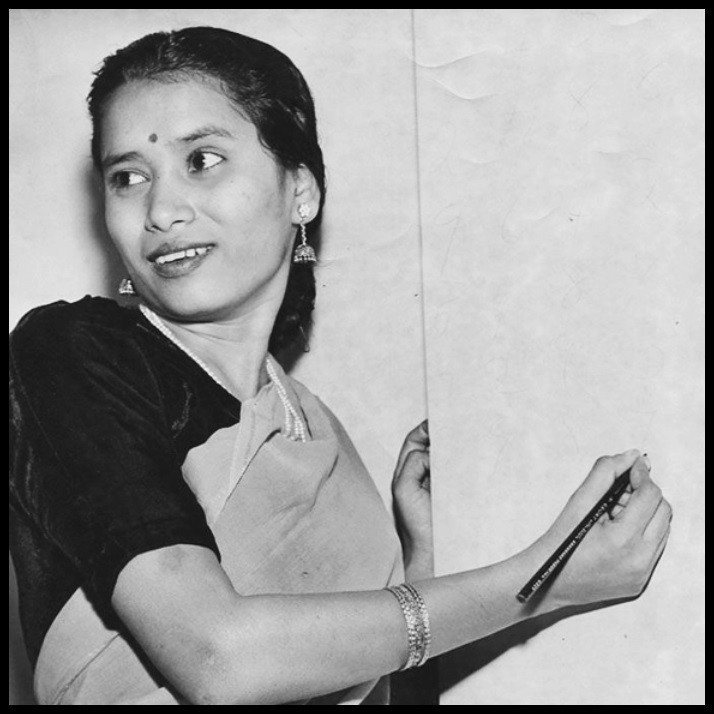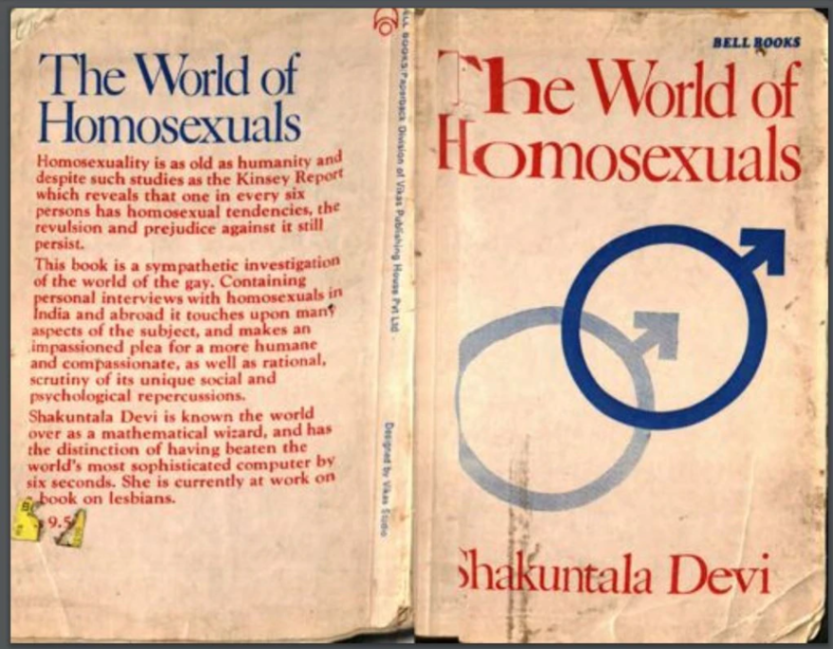
Credit Image: guruprasad.net
A record-holding mathematician and a prominent writer bundled in one, Shakuntala Devi’s life and accomplishments have inspired millions around the world. The most famous human-computer was moreover a significant writer and her thoughts were light years ahead of her time. She was the first Indian to publish the book on homosexuality in India in 1977 and it was labelled “The World of Homosexuals”. Incidentally, she talked about her marriage to a homosexual man named Paritosh Bannerji in the mid-1960s. in a documentary called ‘For Straights Only’ by Vismita Gupta. And this personal experience encouraged her to study more on the topic and publish her work.

Image Credit: Medium.com
It was not easy for an Indian woman to tackle the social norms in the 1970s but Shakuntala Devi somehow rose above everything. She made a genuine effort to study the hardship of the gay community in India. She led surveys in Kolkata, Bengal and Assam’s districts and started speaking to members of the gay community and to same-sex couples. She also began documenting their experiences, their expectations from the society and the controlled manner in which they had to live.
In the preface of the book, she mentions that “she is neither a homosexual nor a scholar, but just a human being who is inquiring into the lives of a minority of her fellow humans who have lived half-hiding throughout their lives. The book has 16 chapters each introducing, surveying and explaining on distinct issues in relation to homosexuality, law, religion, global gay liberation movements, prostitution, STD's (Sexually Transmitted Disease) and perspectives of various people. She explicitly discusses all kinds of sexual behaviours in male and female homosexuals, and even discusses some unpublished data and her own research with several stories of homosexuals around the world. She acknowledges how the study of female homosexuality has been limited compared to the male ones, and how in some sense both male and female homosexuals are the victims of the male dominance and patriarchy. In attempting to present a global perspective to her book, she relies on places such as New York, London and Hamburg, she similarly refers to several literature and films produced by them. Devi credits the western countries for being able and willing to discuss problems related to various sexualities more bravely than others. With some limited Indian context in the book, the Kamasutra, a significant ancient text, which has an entire chapter on homosexual intercourse called Anuparishataka, is shortly stated. Several chapters of her book consist of gay Indians and she asks blunt and frank questions to each. Devi provides a case study of Venkata Subramanian who was a homosexual and reveals some of the bitter realities about how a homosexual person gets treated in our country and how homosexuality in our society is a taboo. Devi explains in her book that the concept of there being two types of sexual tendencies, homosexuality or heterosexuality, is wrong. A person can experience attraction to differently gendered people at different times. In short, the book apparently strikes on the homophobic mindset of our society and tries to change it in Devi's own expressions.
This book was never wiped aside, but it was never allowed to take the centre stage either, in the list of Devi's achievements. This is another example of society's attempt to choke a voice about homosexuality. In India, homosexuality was decriminalised in 2018. And before that, it was looked at as a perversion, a disorder and something that needs to be cured. Though Section 377 of Indian Penal Code has been scrapped, Shakuntala had called for its decriminalization long back in 1977 and it doesn't take a rocket scientist or a world-record-holding mathematician, to understand that Shakuntala Devi's book created quite an uproar in her time. And today, the book is considered to be one of the first comprehensive studies of being gay in India, making Shakuntala Devi honoured as an early pioneer in modern India’s fight for gay rights.
(Source - tandfonline.com/Wikipedia)
